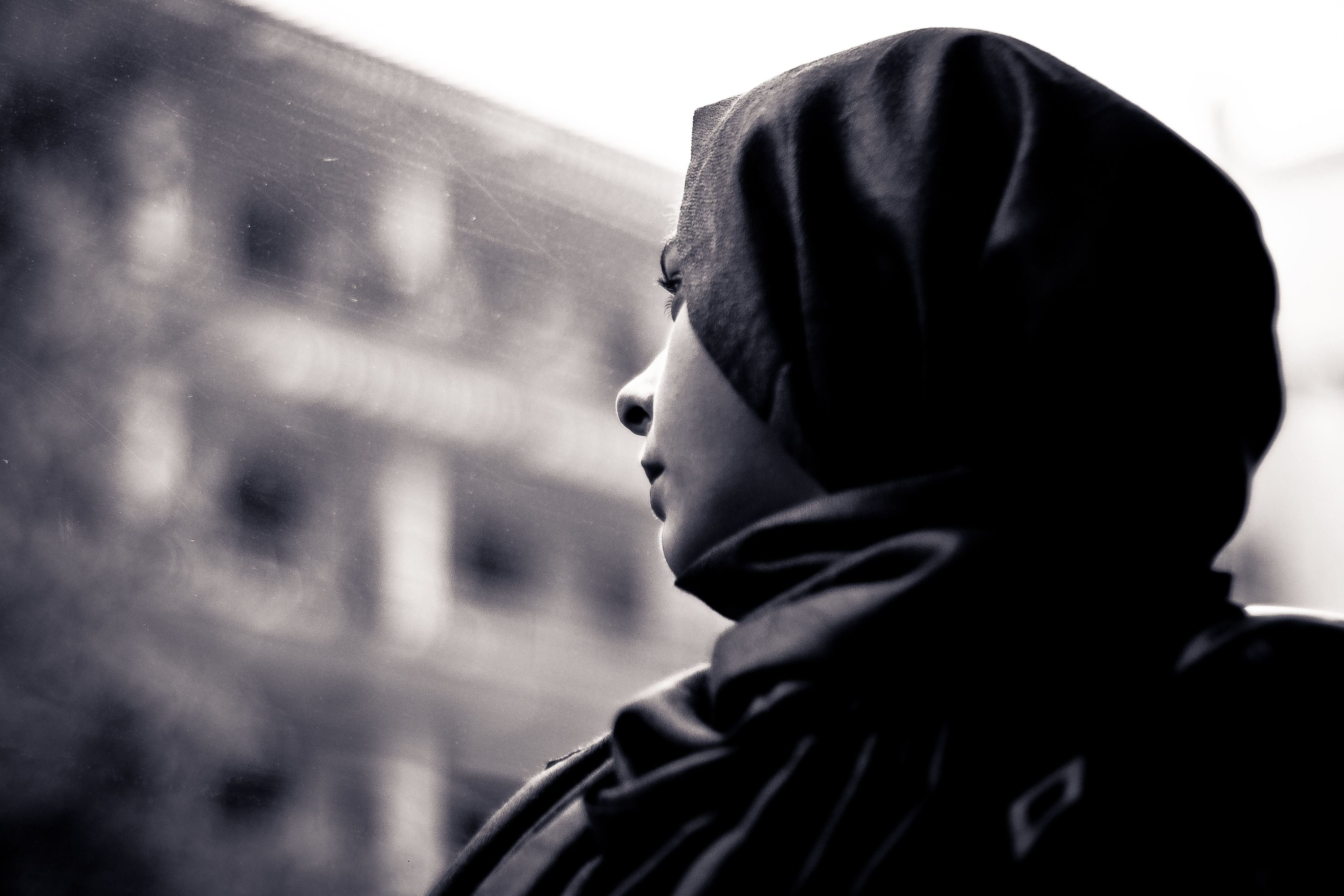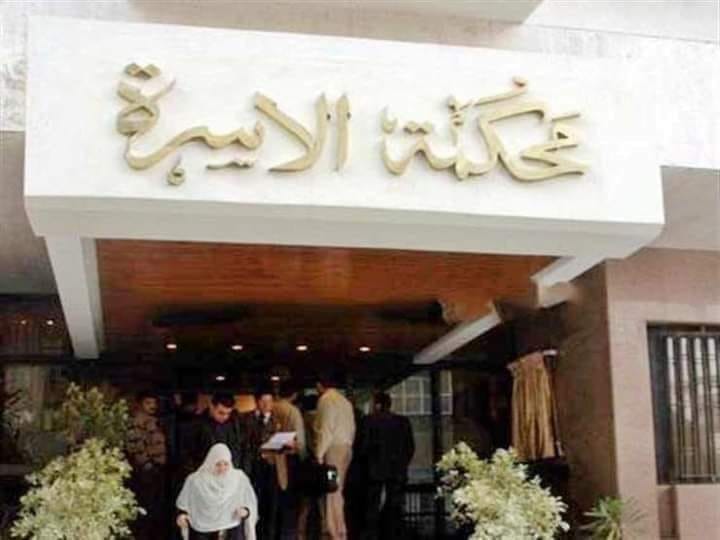She seeks solace, but finds herself in the midst of a whirling whirlpool of complexity and compromise that surrounds her on all sides. This is the case for many Egyptian women who have decided to end their married life and start a new page to erase the traces of all the bad days they have faced. However, amidst an arsenal of laws riddled with loopholes and flaws, many women find their lives being trampled under one blow by their ex-husbands when they choose to seek revenge or ditch the burden and responsibilities of their children .
Official statistics, according to the Central Agency for Public Mobilization and Statistics (CAPMAS), point to a shocking rise in divorce cases in Egypt, reaching more than 254,000 cases in 2021 alone. What these statistics fail to monitor, however, are the consequences for which all parties to the conflict pay, particularly when one party decides to retaliate against the other by exploiting the shortcomings of some civil status laws drafted many years ago, especially since the Egyptian Society has changed a lot since then.
“Custody of women ends when the minor marries her 15”
Legally thrown out
One of the main articles that women find abusive relates to the place where a divorced woman lives with her children, especially since the law states that the ex-husband has the right to take over the marriage custodial home in which his Divorced person and his children live when the youngest child is 15 with his mother, he is sentenced to live with her but with the husband confiscating the custody apartment. Thus, many women are at risk with their children as soon as they reach the age of 15, regardless of the social, psychological or even humanitarian aspects of this problem.
Article 20 of Law No. 100 of 1985, later amended in the first paragraph of Law No. 4 of 2005, stipulates that “female custody ends when the minor reaches the age of fifteen, and then the judge gives him/her the choice to remain with the guardian without custody payments until the minor comes of age or until his/her marriage.”
According to Article 20 of Legislative Decree No. 25 of 1929, as amended by Law No. 100 of 1985, and Article 18 of the aforementioned Legislative Decree, the marital home belongs to the father as custody or dwelling – unless it is legally in the name registered by the mother as property or rent – and the associated custody of the minor in the care of the respondent (the mother) after the obligatory period of care has expired does not entitle her to keep the apartment.
A day she will never forget
Alaa Ahmed (pseudonym) will never forget the day her father enforced the verdict to strip her of custody as soon as her younger sister turned fifteen. “My parents separated after years of troubles, court cases and malicious battles my father waged to humiliate my mother and thereby humiliate us along with her, without even considering the impact of what he is doing on me and my younger sister has.” she tells Raseef22. “I can’t forget the day my father came with the police to force me, my mother and my sister to leave our home where we were born and which has become a permanent part of our memories.”
The young woman, in her 20s, recounted how her father waited until her younger sister was 15 to evict her and her mother from the foster home and ignored their pleas to keep them at home because they had no other place to stay . “He didn’t think he was pushing two young women and their mother onto the street. He didn’t care that we got hurt just so he could get the house we live in. He wasted no time in coming and throwing the three of us to an unknown fate,” she says.
“The law is very quick to throw a mother and her children out on the street, but it is very cautious when it comes to enforcing court decisions against a father who refuses to support his children.”
A law that does not do justice to breadwinners
As for Nermin Mahmoud (pseudonym), she vented her anger at the Personal Status Act, which she described as “an unjust law that does not do justice to women who support their children after their father has left them”. She then asks, “What is this law that supports the expulsion of a mother who dedicated her life to caring for her children after their father abandoned her without even bothering to care for them? and just left her and her children on the street for the dead ex-husband to confiscate the foster home.”

Gaining time when looking for a shelter
Wafa Ashraf’s story was no different after suddenly being faced with the loss of her home: “My ex-husband won the case to seize custody and I had no choice but to appeal the verdict, although I already knew that this step was but my only choice was to buy some time, especially since I do not know where I will live with my children if he throws us out of our house where we have been living for years and where every detail of our life It’s about our social relationships and our children’s schools.”
The children remaining with the mother after the compulsory custody period has expired does not entitle her to maintain the matrimonial home, except in a case where the youngsters are ill and unable to take care of themselves
Wafa adds that she has two daughters, the eldest is 20 while the youngest is 15, and explains that her ex-husband waited until the young girl was of legal age to file a case to to seize custody, and points out if she loses the appeal – which she expects to do – she will have no choice but to file new lawsuits on behalf of her two daughters to get a rent on the apartment, but she fears that the verdict will be low, which is disproportionate to the high rental costs for apartments. She also does not know where she will live until the case is decided and the sentence is carried out.

Deficiencies that need to be corrected
Regarding the legal aspects of settling the custody issue, Suad Magdy Ibrahim, Counsel at the Supreme Court of Appeals and the Council of State, explains that among the principles and rules recognized by the Court of Cassation is to keep a young child after the end of the age limit for the end of custody of the Mother in mother’s hands is not considered an extension of her custody rights, but rather a retention period after the children have been able to relinquish the mother’s custody and services. She notes that the mother in this case is considered to be a voluntary custodian with no pay or housing, meaning the law assumes that a child who has reached the age of 15 relinquishes their mother’s custody and services and therefore if he/she chooses to stay with her, it will be without the mother being entitled to child support or placement.
She explains that keeping the children with the mother after the obligatory parental leave does not give her the right to keep the marital home, except in one case when the boys are ill and unable to take care of themselves.
Ibrahim adds that if the father insists on reclaiming custody from his divorcee and children, in that case the children can file lawsuits against the father to claim the housing fee, but the problem with this is that these cases In many cases, this ends with regulations on minimum amounts that do not come close to the current increases in housing value, so that the children can continue to live in the foster home at the usual level for the rest of their lives.
Raseef22 is the torchbearer for the protection and preservation of human rights and freedom-promoting values. Be the change, support the cause!
take action


Comments are closed.